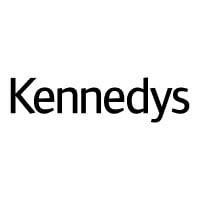

General counsel | YouLend



Yara Owayyed
General counsel | YouLend
Team size: 18
How do you approach managing legal aspects during periods of instability or crises, and how does your legal strategy align with the broader business strategy to ensure the organisation’s resilience?
We’ve built a legal function that acts as a commercially fluent internal consultancy. During periods of instability, we offer structured, principle-based solutions that balance growth, reputation, regulatory trust and long-term business sustainability.
We define red lines early, then map the options clearly: what’s a hard no, what’s grey, what’s possible with guardrails and what’s a clear yes. This gives business teams clarity and speed.
We back this with legal infrastructure, including plain-English cheat sheets, escalation paths and playbooks, so legal judgement is embedded in frontline teams. My team is trained to evaluate decisions like business cases, weighing legal, commercial, reputational and customer impact. We speak the language of the business. making legal indispensable to product, capital and strategic growth.
Have you had any experiences during your career as a lawyer that stand out as particularly unique or interesting?
I was the first Palestinian to clerk at the Israeli High Court of Justice, a role that required navigating law in a highly complex, high-stakes environment. During law school, I translated in criminal courts for three years, worked across several legal journals, and developed an early instinct for bridging cultures and legal systems.
After receiving a Fulbright to Columbia, I pivoted from public law to private practice. Breaking into the US market wasn’t easy. I was rejected by every HR team, so I emailed 500+ partners. Ten replies. Three interviews. One offer: Paul, Weiss. Then I had to hustle again to get a job in London: LW and then A&O.
My journey has taught me to embrace the unconventional path: to hustle, adapt quickly, and learn new jurisdictions and legal frameworks on the fly, and grow into a GC who leads across legal, product and strategy.
What do you think are the most important attributes for a modern in-house counsel to possess?
Modern in-house counsel must act as strategic enablers rather than passive risk spotters, adopting a “yes, if” mindset rooted in principled risk-taking. By shadowing other departments and understanding how the business operates, they position themselves as trusted internal consultants. Key attributes include fluency in commercial and regulatory models, with the ability to explain complexity in simple terms; scalable systems thinking to build tools such as cheat sheets, decision trees, and automation; and empathy and integrity to foster a human-first team culture grounded in curiosity, ownership, and trust. Accountability and sound judgment are essential to ensure decisions reflect what is right, not just what is legal, while AI-savviness allows teams to embrace automation and focus on higher-value work.